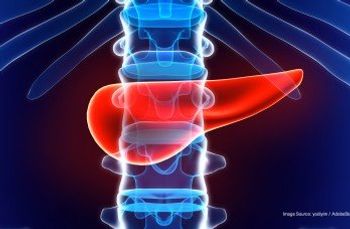
- ONCOLOGY Vol 10 No 9
- Volume 10
- Issue 9
Disease Management: State of the Art in Pancreatic Cancer
During our medical training, we were often reminded that our purpose is not just to take care of a disease, but rather, to take care of the person with that disease. We learned that a patient's physical condition represents only one aspect of that disease
During our medical training, we were often reminded that our purposeis not just to take care of a disease, but rather, to take careof the person with that disease. We learned that a patient's physicalcondition represents only one aspect of that disease and thatpatient. We also learned to listen to patients and understandtheir illness within the context of their lives.
Pancreatic cancer puts this notion to its greatest test. Becauseof limitations that exist in so many crucial aspects of this disease,from early diagnosis, to accurate noninvasive staging, to effectivetreatment, we are faced with the difficult task of offering primarilypalliative care to individuals with an advanced stage of a highlymalignant, symptomatic disease. Because of the progressive natureof advanced pancreatic cancer, palliative measures must be continuallyreassessed and adjusted to meet the changing needs of the patient.These needs place a great burden on the patient, patient's family,and health-care system. Aside from efforts directed at controlof the tumor itself, adequate attention must be given to attemptsto reduce pain, control nausea and vomiting, optimize nutrition,recognize and treat depression, promote patient involvement indisease management, identify and compensate for functional disability,and facilitate access to support systems for social and spiritualneeds.
This issue of ONCOLOGY focuses on the multifaceted care of patientswith pancreatic cancer. We have endeavored to provide viewpointsfrom a wide array of health-care professionals who may be involvedin the care of these patients. In addition to insights from medical,surgical, and radiation oncologists, we are fortunate to havethe perspectives of a clinical nurse specialist who works on agastrointestinal surgery service (Ms. JoAnn Coleman), a nutritionist(Dr. Faith Ottery), a psychologist who works exclusively withcancer patients (Dr. Steven Passik), an oncology social workerbased in a community setting (Ms. Victoria Kennedy), a registerednurse and cancer survivor who promotes patient advocacy (Ms. SusanLeigh), a physician who heads a palliative care program (Dr. DeclanWalsh), and the head of a hospital-based pastoral care program(Reverend George Handzo). The different backgrounds and trainingof these individuals provide each with a slightly different, butcomplementary, approach to the care of the person with pancreaticcancer. It is hoped that the information contained in this supplementcan help health-care professionals identify and successfully addressthe many needs of our patients with pancreatic cancer and theirfamilies.
Articles in this issue
over 29 years ago
Antisense Gene Therapy Trials Underway in Patients With CMLover 29 years ago
BOOK REVIEW: Leukemiaover 29 years ago
Most Terminal AIDS Patients Want to Be Revived if Their Heart Stopsover 29 years ago
How to Better Communicate Cancer Risk to Patientsover 29 years ago
Gemcitabine Shows Promise as Combination Agent in NSCLCover 29 years ago
Data Review Shows Fruits and Vegetables Can Block Major CancersNewsletter
Stay up to date on recent advances in the multidisciplinary approach to cancer.















































